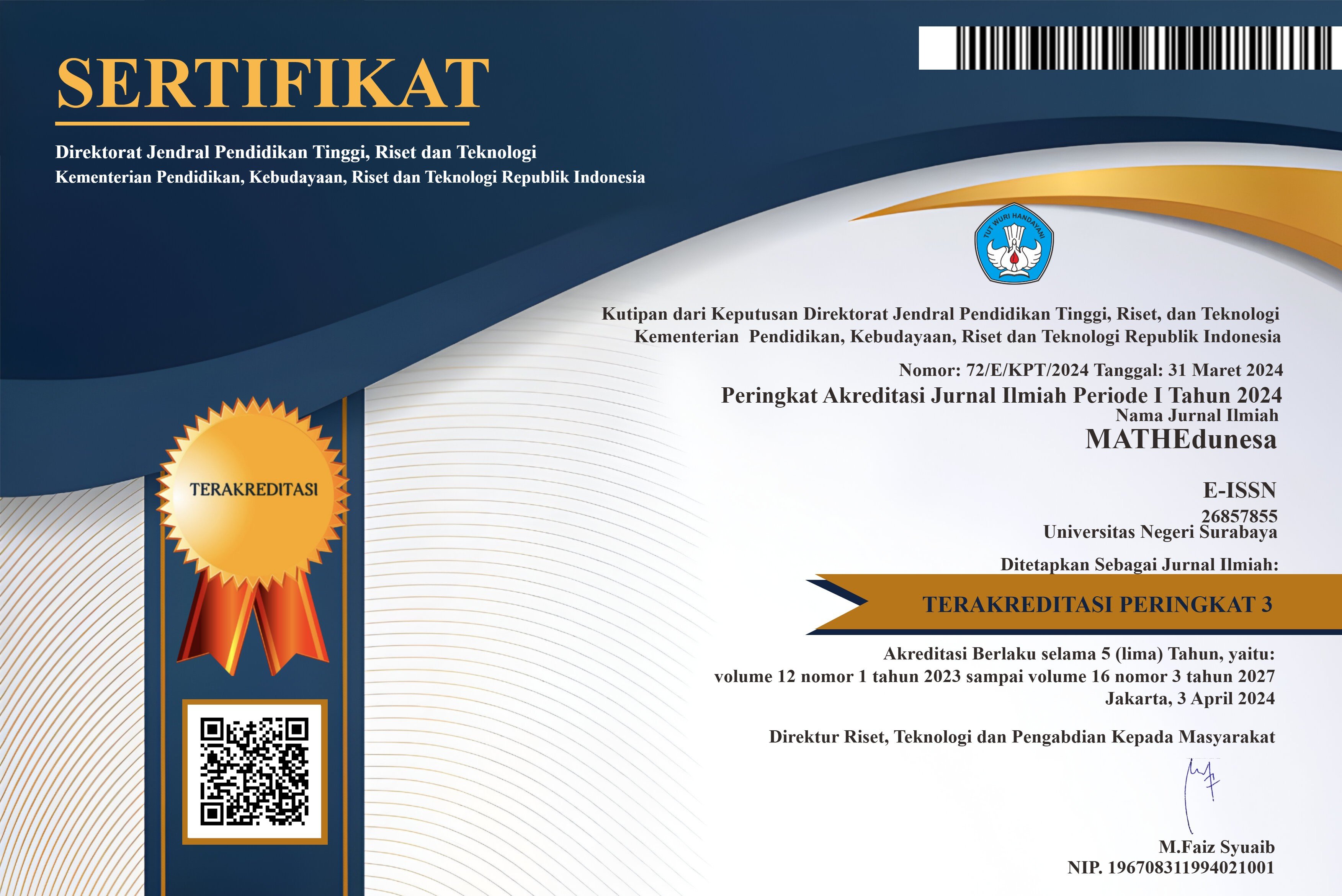High School Students' Combinatorial Thinking in Solving Combinatoric Problems Based on Mathematical Ability
DOI:
https://doi.org/10.26740/mathedunesa.v12n2.p450-468Abstract
The purpose of this research is to describe the combinatorial thinking of high school students in solving combinatoric problems based on mathematical ability. Combinatorial thinking is a basic thinking ability that must be continuously developed towards critical thinking abilities and skills, so as to build one's knowledge or arguments and experiences. This research is a descriptive study using a qualitative approach. The research subjects consisted of three 16-year-old students who had studied probability material for class X and had high, medium, and low mathematical abilities. The data in this study were obtained through combinatoric problem assignments and task-based interviews. The data obtained will be analyzed by reducing data, presenting data, and drawing conclusions. The results of the study show that: (a) high-ability students' combinatorial thinking starts from Formulas/Expressions ? Counting Processes ? Sets of Outcomes ? Expressions ? Counting Processes ? Sets of Outcomes ? Counting Processes ? Sets of Outcomes which fulfills all indicators of the level of combinatorial thinking and using two types of verification strategies. (b) medium-ability students' combinatorial thinking starts from Expressions ? Sets of Outcomes ? Formulas ? Counting Processes ? Sets of Outcomes ? Counting Processes ? Sets of Outcomes which fulfills all indicators of the level of combinatorial thinking and uses one type of verification strategy. (c) low-ability students' combinatorial thinking starts from Expressions ? Sets of Outcomes ? Counting Processes ? Sets of Outcomes in which some indicators of the level of combinatorial thinking are met and do not use verification strategies.
Downloads
Downloads
Published
Issue
Section
 Abstract views: 180
,
Abstract views: 180
, PDF Downloads: 223
PDF Downloads: 223




